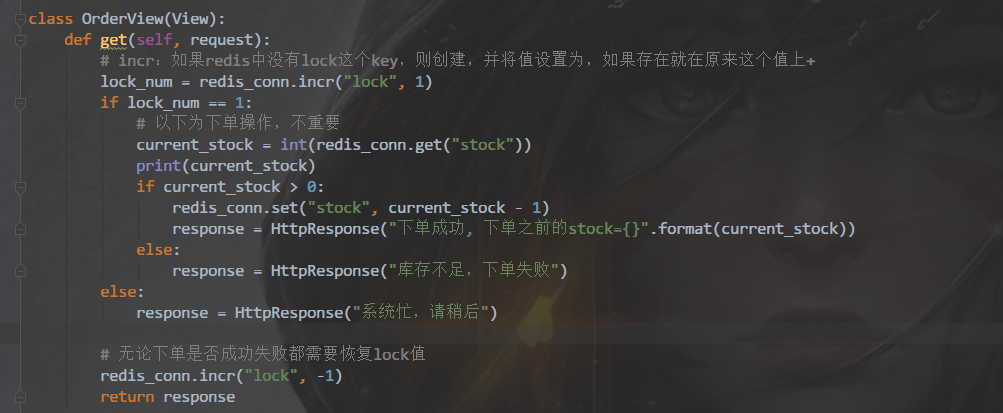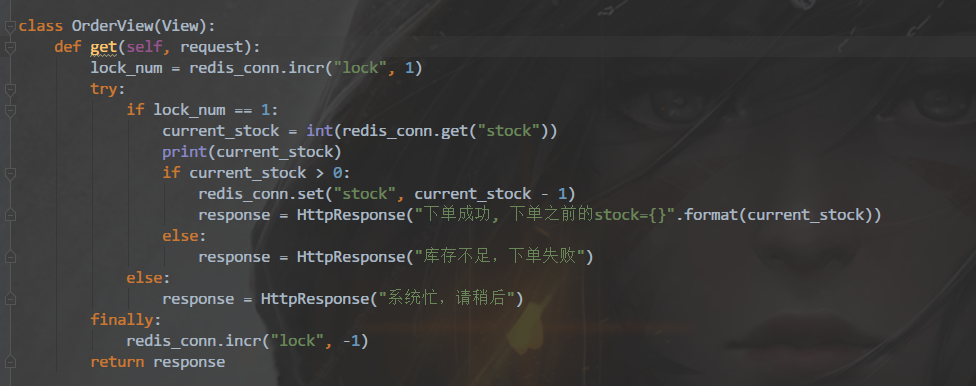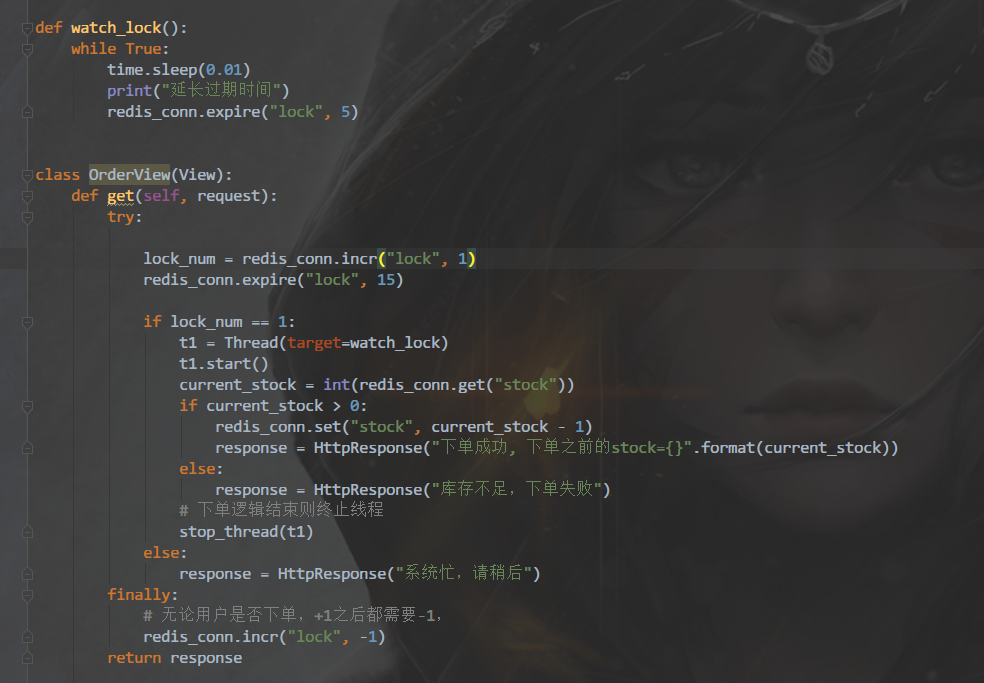解决的问题
分布式环境下,希望把用户的操作从并发执行变成原子执行案例:
将订单并发变成串行执行, 相比悲观锁来说能够减少数据库的压力。
原理
redis是单线程的,并发过来的请求,redis都会让他们排队串行执行,redis内部是线程安全的
实现的代码
<ignore_js_op>
考虑到如果下单出现异常则锁将永远无法释放,因此做异常捕获,无论代码是否异常要释放锁
<ignore_js_op>
考虑到如果下单过程中服务器宕机,则锁将永远无法释放
方案一:应用开始起置空redis中的lock
方案二:给锁设置过期时间,但是如果用户的下单操作超过了lock的过期时间,则下单没有完成锁就失效了。 过期时间设置的太长宕机立刻重启问题也解决不了
# 解决方案 启动一个子线程,每过2s给锁重设过期时间,主线程执行结束,则销毁子线程
<ignore_js_op>
销毁线程的代码
[Python]
纯文本查看 复制代码
|
01
02
03
04
05
06
07
08
09
10
11
12
13
14
15
16
17
18
19
20
21
22
23
24
25
26
27
28
29
30
31
32
33
34
|
from
threading
import
Thread
import
inspect
import
ctypes
def
_async_raise(tid, exctype):
"""raises the exception, performs cleanup if needed"""
tid
=
ctypes.c_long(tid)
if
not
inspect.isclass(exctype):
exctype
=
type
(exctype)
res
=
ctypes.pythonapi.PyThreadState_SetAsyncExc(tid, ctypes.py_object(exctype))
if
res
=
=
0
:
raise
ValueError(
"invalid thread id"
)
elif
res !
=
1
:
# """if it returns a number greater than one, you're in trouble,
# and you should call it again with exc=NULL to revert the effect"""
ctypes.pythonapi.PyThreadState_SetAsyncExc(tid,
None
)
raise
SystemError(
"PyThreadState_SetAsyncExc failed"
)
def
stop_thread(thread):
_async_raise(thread.ident, SystemExit)
def
a():
while
True
:
print
(
"123456789"
)
if
__name__
=
=
'__main__'
:
t
=
Thread(target
=
a)
t.start()
stop_thread(t)
|
遗留的问题 下单不符合先来后到的顺序
更多技术资讯可关注:gzitcast